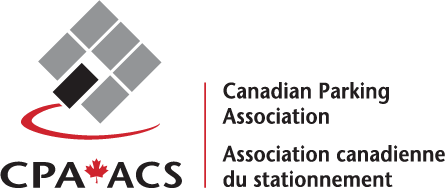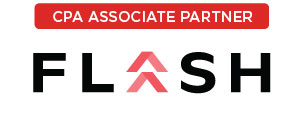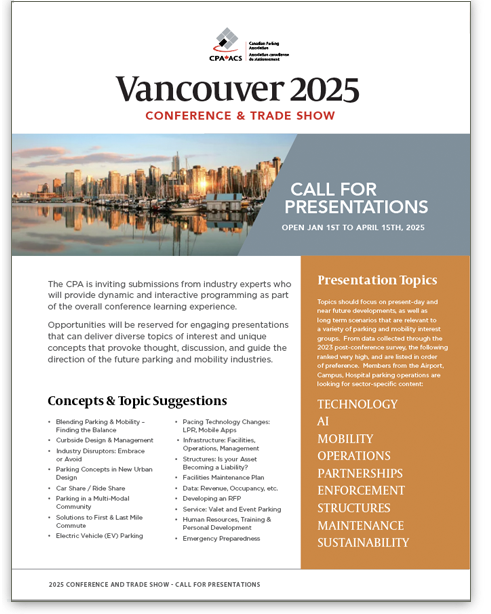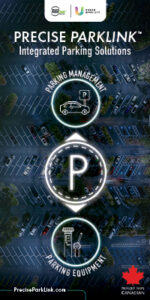When it Comes to Accounting, It’s Time to Enter the 21st Century
By Ruth Beaman
Technology is transforming parking. New equipment is constantly being introduced: access and revenue control equipment, apps for mobile devices, wayfinding technologies – the list goes on and on. However, as important as technology has come to be, one of the most important aspects of parking management is still stuck in the dark ages. Most owners and operators still haven’t automated their accounting and auditing functions.
In the beginning, parking was a relatively informal and low-tech industry, at least when it came to how it was managed. There’s a common caricature of the early parking operator: cigar in mouth, collecting parking fees and storing them in a cigar box until it was time to go to the bank. As quaint as this image may seem, it’s actually pretty accurate. The problem is, it’s not all that far off today. No, parking operators don’t still keep their money in cigar boxes, at least most don’t. But when it comes to accounting and auditing, most are still living in the past: collecting their receipts, entering parking and revenue data by hand, and hoping reconciliation finds that they’ve ended up with all the money they should.
The problem with manual accounting is that it’s tremendously time consuming, wasting valuable staff time and unnecessarily costing operators thousands of dollars a year in unnecessary staffing dollars. Upon automating, one city found that accounting staff time decreased by 75%.
Another challenge posed by manual accounting is accuracy. When figures are being counted by hand and data is being entered manually, data entry and counting mistakes tend to crop up. Even the simplest of mistakes can necessitate costly audits to reconcile receipts with bank balances.
Finally, like any business where cash transactions are common, theft is a major concern. Unfortunately, the manual accounting that’s common in the industry fosters stealing and makes it easier for criminals to hide theft.
No Entry Needed
One of the most time consuming and costly aspects of accounting by hand is data entry. Automated accounting software can completely eliminate the need for manual entry, gathering financial information from parking equipment and automatically post that information to a facility’s financial statement. Not only does automating improve the accuracy of reporting, but it also frees up staff to focus on their most important role: customer service.
The analytics provided by parking accounting software can be invaluable to making informed decisions about how to operate a parking facility. And it’s not just about running numbers; managers can also use the data to run “what-if” analysis.
Want to know what a parking tenant should be asked to pay for a block of spaces? Good software can analyze utilization data and comparative price information for a block of spaces to provide guidance into how to price those spaces.
Want to know whether a block of spaces is producing revenue at the rate it should? Software can evaluate revenue and utilization data to tell owners what they are making, and what they should be making.
Want to know whether you have the proper mix of monthly and transient parking? Using software, you can break down and compare every conceivable rate structure and report on the anticipated payback of each combination.
In the past, these types of analysis required counting each ticket by hand. In addition to taking days (sometimes weeks) to complete, these processes were susceptible to mistakes and the information gleaned was of questionable value. Now, these analyses can be performed at the push of a button and completed in seconds.
Automation provides particularly important benefits to owners with multiple parking facilities. The software can compare financial data across locations so owners and operators can compare the performance of each and determine which are performing well and which need attention. It can also provide guidance as to where certain types of parkers (transient vs. permit) should be parking so owners with multiple locations can increase the value of each facility. By directing permit parkers to locations with spaces that are less attractive to daily parkers, prized daily spaces can be saved for transient parkers. Automating these functions does more than save valuable staff time – it also dramatically increases accuracy since there’s no risk of mistaken entries.
Credit Card and ACH Payment
Of course, not all mistakes happen with parking personnel. Credit card companies have been known to underpay (though interestingly, they never seem to pay an operator too much!). With all of the credit card transactions that happen in a typical day in a parking facility, it can be difficult, if not impossible, to keep track of whether the credit card companies are actually paying out at the proper levels. With automated accounting, the software can handle this task as a matter of course, keeping the credit card companies on track.
Similarly, parking accounting software can manage recurring payments from monthly parking tenants seamlessly. The software automatically communicates with parking tenants to remind them when a payment is due. And when an automated payment is received, the software records the payment and then automatically issues the appropriate permit. This is a vast improvement both in terms of staff productivity and accuracy over the traditional approach, which required staff to open mail and sort through cheques, verify the payer, issue a hang tag or other form of permit, and then mail it to the tenant.
Eliminating Theft
Finally, automation also provides benefits on the back end of the revenue stream by providing instant reconciliation data. Owners and operators can check revenue streams at any time to make sure that all of the money being collected is making it to the bank. How big a problem is this? There are owners who regularly lose hundreds of thousands of dollars each year in revenues that never make it to the bank.
Take, for example, the case of a large parking owner with multiple locations. For years, company administrators had been complaining that their bank statements were indicating money was disappearing between its garages and the bank. The administrators were routinely assured that it was just a matter of timing—that the money was merely in transit when the reports were run. However, when this owner automated its accounting, administrators found that the money was actually disappearing before it could get to the bank. Now, the owner is notified by the software if revenues take more than 18 hours to get into the bank, and the previously common losses have virtually disappeared.
For an industry that has historically been so susceptible to theft, this is a huge deal. Automating accounting functions with specialized software can eliminate the risk of staff underreporting revenues and pocketing the difference.
Stepping Into the Future
Technology has improved so many aspects of parking management that it almost strains belief that many parking owners and operators are still doing their accounting manually. The simple act of automating accounting with software tools designed specifically for parking management can save thousands of staff hours through increased efficiency, significantly improve the accuracy of financial spreadsheets and reports, and dramatically reduce—if not eliminate—the risk of theft. When it comes to accounting, it’s time for the parking industry to step into the future.





